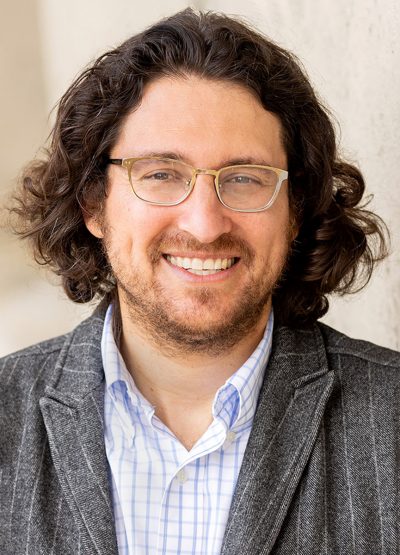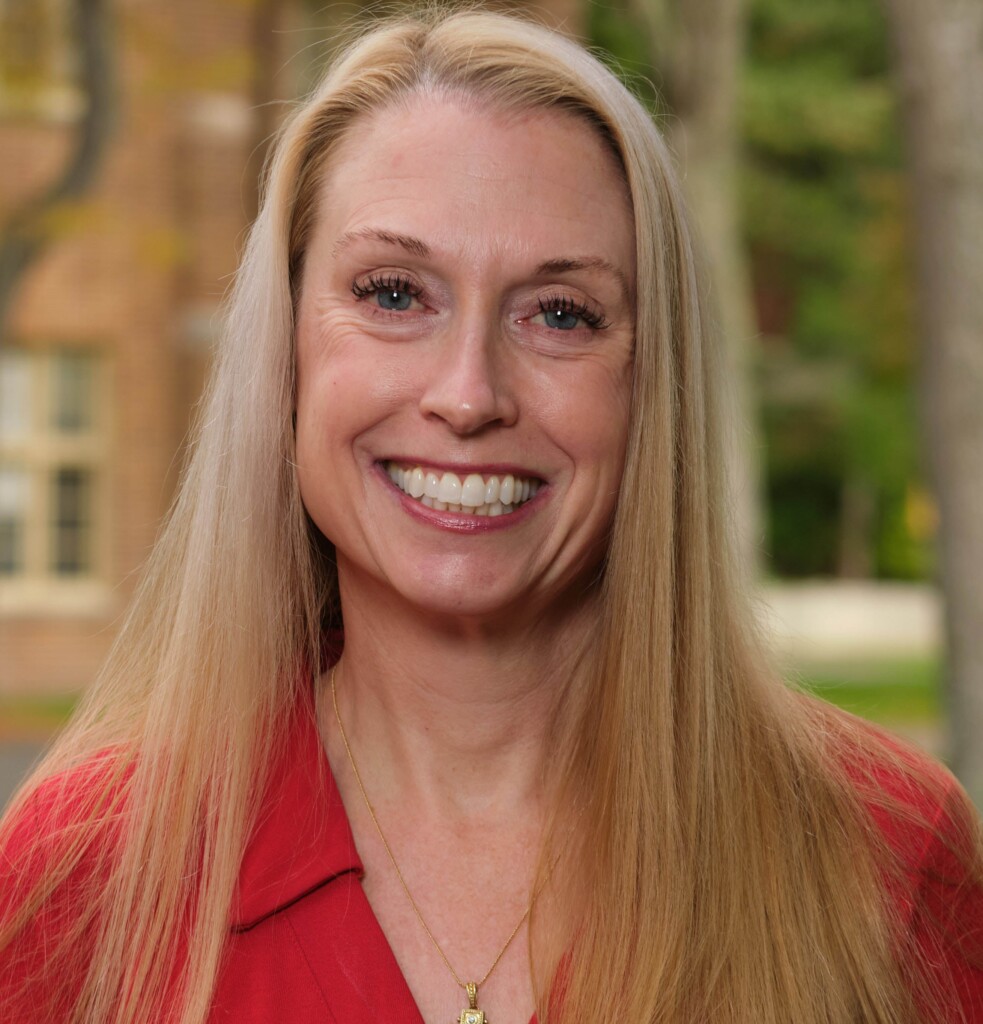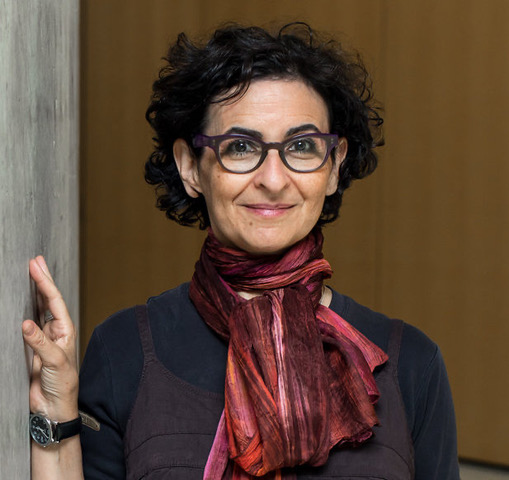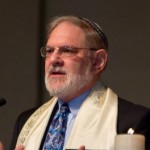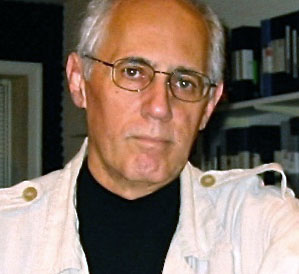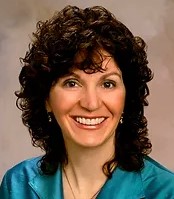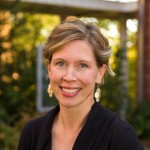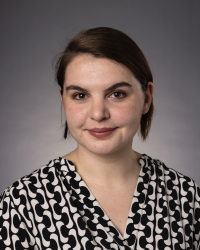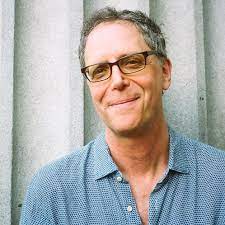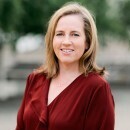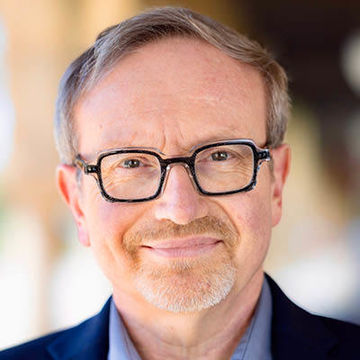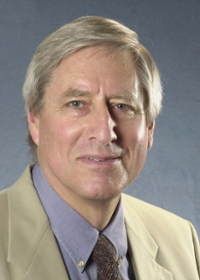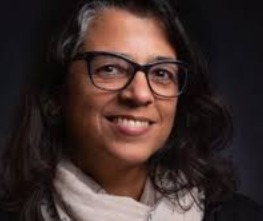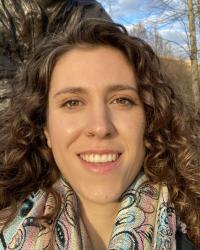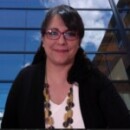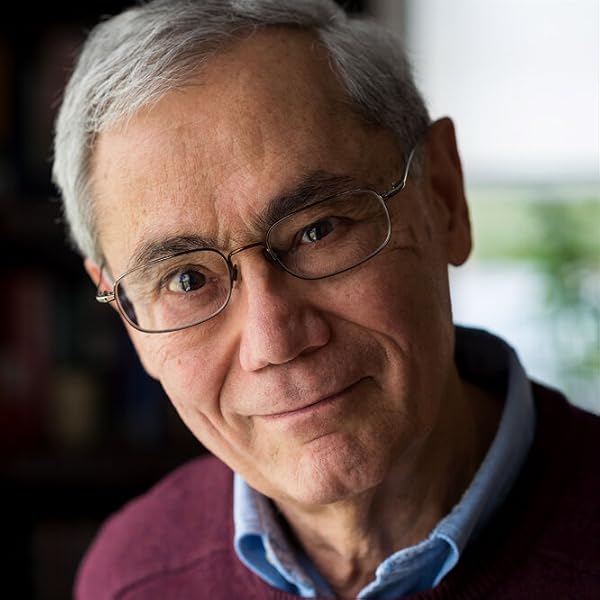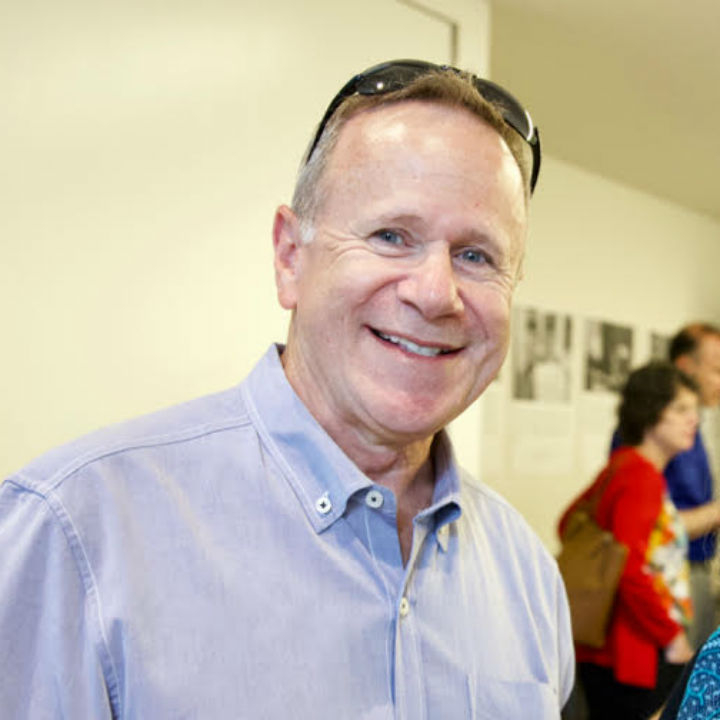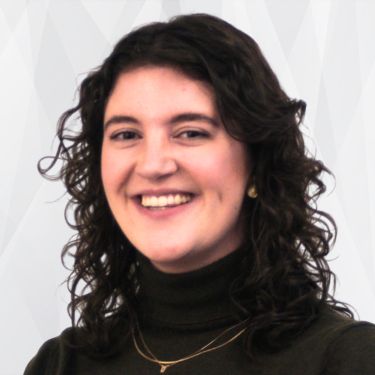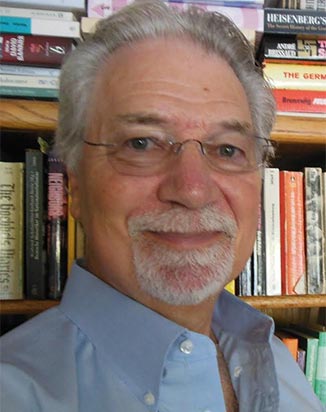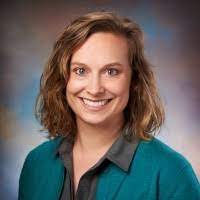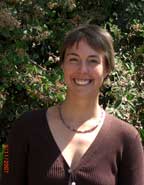Powell-Heller Conference for Holocaust Education
“Sephardic Jewish Voices and Experiences in the Holocaust”
Speakers
Free and Open to the Public - Registration Required
Wednesday, November 6
Keynote Opening Address: “From the Ottoman Empire to the Holocaust”
Who:
Professor Devin Naar, Isaac Alhadeff Professor in Sephardic Studies, Stroum Center for Jewish Studies, University of Washington-Seattle and Sephardic Studies Program Chair
Bio:
Dr. Devin E. Naar is the Isaac Alhadeff Professor in Sephardic Studies, Associate Professor of History, and faculty at the Stroum Center for Jewish Studies in the Jackson School of International Studies at the University of Washington. From New Jersey, Dr. Naar graduated summa cum laude from Washington University in St. Louis and received his Ph.D. in History at Stanford University. He has also served as a Fulbright fellow to Greece.
Convener:
Dr. Beth Griech-Polelle, Kurt Mayer Chair of Holocaust Studies and Associate Professor of History, PLU
Bio:
Beth A. Griech-Polelle, the Kurt Mayer Chair of Holocaust History, earned her bachelor’s degree at Chestnut Hill College, Philadelphia, Pennsylvania and her M.A. and Ph.D. at Rutgers, the State University of New Jersey. Her doctoral advisor was Professor Omer Bartov. She is the author of Bishop von Galen: German Catholicism and National Socialism (Yale University Press, 2002).
She is the co-editor with Dr. Christina Guenther of the book, Trajectories of Memory: Intergenerational Representations of the Holocaust in History and the Arts (Cambridge Scholars Press, 2008) and she is the editor of The Nuremberg Trials and Their Policy Consequences Today (NOMOS Verlag, Baden-Baden, Germany, 2008). In addition, she is the author of many chapters in books and numerous book reviews. She is currently under contract with Bloomsbury Academic Press, London, UK to write a textbook on antisemitism and the Holocaust.
She has presented papers at conferences all over the world, including at Yad Vashem, Jerusalem, Israel, the Belgian Academy of Rome, Rome, Italy, and The German Historical Institute in London, UK. She has participated in scholars’ workshops and seminars at the United States Holocaust Memorial Museum and has given lectures in various venues including the Toronto Holocaust Education Week and at many synagogues. She is dedicated to educating the general public and has given lectures at historical societies, local high schools and junior highs, and at professional days for public school teachers. In addition to her public speaking, Dr. Griech-Polelle is an editor of the online journal, Contemporary Church History Quarterly and she is currently serving as guest editor of the Journal of Jesuit Studies special edition on Jesuits and communism.
Thursday, November 7
Presentation Title: “Pre-War Sephardic Jewish Life”
Who:
Lauren Granite, US Program Director, Centropa
Bio:
Dr. Lauren Granite is US Program Director for Centropa, an historical institute based in Vienna that interviewed over 1200 elderly Jews in 15 Central and Eastern European countries. She has a Ph.D. from Drew University, and master’s degree from the University of Chicago. Before joining Centropa in 2010, she spent more than a dozen years teaching Jewish history to adults, college students, and teens. She builds Centropa’s network of schools in North America; designs professional development seminars, and webinars; and develops programs and teaching tools for Centropa’s educators in the US, Europe, and Israel.
Presentation Title: “Tunisia’s Jewish Boxer: Teaching the Holocaust Through the Human Story”
Who:
Lori Gerson, Yad Vashem
Bio:
After graduating from Barnard College in New York, Lori Gerson worked for many years in the field of education in the United States. After moving to Israel in 2005, Lori joined the Yad Vashem team as a guide for educational groups. Since 2016, Lori has taken on the role of Educational Coordinator in Yad Vashem’s Overseas Education and Training Department where she lectures, coordinates seminars, develops curriculum and guides educators in best practices.
Convener:
Bruce Kadden, PLU
Bio:
Bruce Kadden is rabbi of Temple Beth El in Tacoma and Adjunct Professor in the Religion Department, part of Holocaust and Genocide Studies faculty, and Affiliate Chaplain at PLU. He and his wife Barbara of blessed memory are authors of three books in Jewish education. He was the editor of a symposium on the theme of “Poetry after Auschwitz” that appeared in the Journal of Reform Judaism in Winter 2015 comprised of articles by PLU faculty. He earned his B.A. in Religious Studies from Stanford University and was ordained as a rabbi at Hebrew Union College-Jewish Institute of Religion.
Presentation Title:
Who:
Anna Marko, Mayer Summer Scholar, PLU
Bio:
Anna Marko is a senior at Pacific Lutheran University, majoring in Genocide Studies and History with a minor in English Writing. In 2023, she was honored as one of the Kurt Mayer Scholars. Anna recently presented her paper, “Are You Dead Yet?: HIV/AIDS and the Slow Genocide Against the Rwandan Abatutsi,” at the 10th Annual Genocide and Human Rights Research Conference, organized by the Center for Genocide and Human Rights Research in Africa and the Diaspora (GHRAD) at Northeastern Illinois university , as well as at the University of Washington. Currently, she serves as the Severtson Research Fellow, focusing on a project titled “Reconceptualizing the Cyclical Genocidal Violence in the Great Lakes Region of Africa from 1959-2003.”
Presentation Title: “The Bosnian Genocide (1992-Present Day): How the Use of Rape as a Weapon of War Has Led to the Ongoing Genocide Against Bosniaks”
Who:
Austyn Blair, Mayer Summer Scholar, PLU
Bio:
Austyn Blair Genocide Studies; Religion; and Gender and Sexuality Studies. He hopes to go into genocide research, prevention, and teaching.
Presentation Title: “Nazi Influence on Contemporary Understandings of Autism”
Who:
Eden Standley, Mayer Summer Scholar, PLU
Bio:
Eden Standley (they/them) is an autistic and non-binary fourth-year student at PLU majoring in English–creative and professional writing–as well as Gender, Sexuality, and Race studies, and minoring in psychology. Eden grew up in Tacoma and as such has developed the weird and gritty personality that comes with living here. For Eden, weirdness translates to embracing the singularity of their unique experience, and grit translates to passion and powerful attention. These factors have driven their work as an editor with PLU’s literary arts magazine Saxifrage, which publishes student literary work; as an outreach specialist with the Tacoma Tree foundation helping to grow and protect Tacoma’s tree canopy; and as an amateur holocaust and autism historian investigating autism’s roots in Nazi Vienna with the Kurt Mayer Summer Fellowship. They look forward to graduating this spring and finding a job doing intersectional work around climate issues. In their spare time they are in love with their dog, their partner, and the small, familiar, nostalgic, corners of Tacoma.
Presentation Title: “Miracle at Zakynthos”
Who:
Deno Seder, Author, Producer, Director
Bio:
Deno Seder is the author of four books and has written, produced and directed films and videos in the areas of art, politics, public service, and historical events. His current project is a 20-minute filmed stage play about the Holocaust which will be distributed to middle and high schools across America and will include a curriculum guide for teachers prepared by the United States Holocaust Memorial Museum. The play is based on Seder’s book, Miracle at Zakynthos, The Only Greek Jewish Community Saved In Its Entirety From Annihilation. Seder is the co-founder of a nonprofit organization, Cultural Exchange Foundation, which has presented Holocaust-related exhibitions, presentations and films in Washington, DC, New York, Boston, Budapest and Jerusalem (Yad Vashem). Seder is married to art director Anita Semjen and lives in the Washington, DC area.
Presentation Title: “The Sephardic Anne Frank: How a 9-year old Girl from Rhodes Saved her Family from the Holocaust”
Who:
Cynthia Flash Hemphill, Seattle-area journalist and publicist
Bio:
Cynthia Flash Hemphill is a journalist and publicist. During her journalism, Flash worked for United Press International, the Tacoma News Tribune, and other newspapers in Washington, Arizona and California. Her work has appeared in dozens of magazines, newspapers and online media sources. Since 2000 she has owned Flash Media Services, a media relations firm based in Bellevue, Wash. As a first-generation American, Cynthia became interested in her family’s immigration story after being surrounded by Seattle’s Sephardic Jewish religion, culture and history. She is editor of her mother Claire Barkey Flash’s epistolary memoir, “A Hug from Afar,” promotes the Sephardic traditions and culture today as president of the Seattle Sephardic Network, and is helping her son produce a film on the last survivors of Rhodes.
Convener:
Dr. Heather Mathews, Chair of Communication, Media & Design Arts, Associate Professor of Art History, University Gallery Coordinator
Bio:
Heather Mathews joined the Department of Art and Design in 2007. She earned her B.A. in Art History and German from Hood College and her M.A. and Ph.D. in Art History from the University of Texas at Austin.
Her specialization is the German art of the Cold War period, and she is interested in all aspects of German cultural and history. Her research and publications are focused on the role of the artist in public discourse in East and West Germany, as well as on the exhibition of contemporary art as a cultural and political force in the Cold War era and today. Her most recent work deals with contemporary art and cultural integration.
In addition to teaching on topics such as gender issues, identity, and memory in modern and contemporary art, Heather is Coordinator of the University Gallery (including the University Gallery Annex and the Karen Hille Phillips Gallery) and manages the University’s Permanent Art Collection.
Presentation Title: “Voicing in Ladino, Translating into Ladino: The Sephardic Holocaust on Paper”
Who:
Canan Bolel, Assistant Professor in Jewish Cultures, Literature, and Languages of the Eastern Mediterranean, University of Washington-Seattle
Bio:
Canan Bolel is an Assistant Professor in Jewish Cultures, Languages, and Literatures of the Eastern Mediterranean in the Department of Middle Eastern Languages and Cultures at the University of Washington. Her current book project focuses on marginalized individuals and groups and questions how Sephardic Jews constituted their identities within imperial and communal settings by focusing on the Jewish cholera-stricken criminals and converts to Protestant Christianity. Bolel received her Ph.D. in Near and Middle Eastern Studies from the University of Washington in 2022. She holds a Master of Sciences in Sociology from the London School of Economics and Political Science.
Presentation Title: “Co-witnessing: Six years and a Hundred-plus Saturdays with Stella Levi and the Juderia of Rhodes—and beyond”
Who:
Michael Frank, Author of “One Hundred Saturdays: Stella Levi and the Search for a Lost World”
Bio:
Michael Frank is the author of What Is Missing, a novel, and The Mighty Franks, a memoir, which won the 2018 JQ-Wingate Prize. Named one of the top ten books the year by The Wall Street Journal, One Hundred Saturdays: Stella Levi and the Search for a Lost World received a Natan Notable Book Award, two National Book Awards from the Jewish Book Council, the Sophie Brody Award for outstanding achievement in Jewish literature. Frank is the recipient of a 2020 Guggenheim Fellowship and lives with his family in New York City and Camogli, Italy.
Convener:
Bridget Yaden, Associate Provost for Undergraduate Programs; Professor, Hispanic and Latino Studies, PLU
Bio:
I am a proud native of Tacoma and first generation college student that began my formal second language study in high school. My grandparents were native speakers of Gaelic who immigrated to Tacoma, so my love of languages and cultures started early.
I stayed local for college, earning my BA in Spanish from WWU and my MA and PhD in Romance linguistics from the UW. I was fortunate to be able to study away in many locations over the years, including Spain, Guatemala, and Russia. In addition to Spanish, I have studied Latin, Portuguese, and Russian.
I’m passionate about second language acquisition and linguistics as well as supporting pre-service ELL, bilingual, and world language teachers. My service to PLU and to the profession is a big part of my lift outside of teaching and scholarship. Most recently, I’ve served as the 2020 president of our national world language teacher association of over 12,000 educators (ACTFL) and I serve as PLU’s Associate Provost for Undergraduate Programs.
Lemkin Lecture Keynote Address: “The Destruction of a Small Sephardi Community in Northern Greece: Demotica in 1943”
Who:
Professor Aron Rodrigue, Daniel E. Koshland Professor of Jewish Culture and History, Burke Family Director of the Bing Overseas Studies Program, John Henry Samter Fellow in Undergraduate Education, Stanford University
Bio:
Aron Rodrigue is the Daniel E. Koshland Professor of Jewish Culture and History at Stanford University. He is the Burke Family Director of the Bing Overseas Studies Program. His scholarly research and teaching focuses on the history of the Ottoman Empire and southeastern Europe in the 19th and the 20th centuries with special focus on the Jews and other minorities in the period of transition from empire to nation-states.
Convener:
Dr. Christopher R. Browning, Frank Porter Graham Professor of History at University of North Carolina
Bio:
Christopher R. Browning was the Frank Porter Graham Professor of History at the University of North Carolina-Chapel Hill until his retirement in May 2014. Before taking up this position in the fall of 1999, he taught for 25 years at Pacific Lutheran University in Tacoma, Washington.
Browning received his B.A. degree from Oberlin College in 1967 and his M.A. and Ph.D. from the University of Wisconsin-Madison in 1968 and 1975 respectively. He is the author of eight books: The Final Solution and the German Foreign Office (1978), Fateful Months: Essays on the Emergence of the Final Solution (1985), Ordinary Men: Police Battalion 101 and the Final Solution in Poland (1992), The Path to Genocide (1992), Nazi Policy, Jewish Workers, German Killers (2000), Collected Memories: Holocaust History and Postwar Testimony (2003), and The Origins of the Final Solution: The Evolution of Nazi Jewish Policy, September 1939-March 1942 (2004), and Remembering Survival. Inside a Nazi Slave Labor Camp (2010). He is also co-editor of Every Day Lasts a Year: A Jewish Family’s Correspondence from Poland (2007).
Browning has served as the J. B. and Maurice Shapiro Senior Scholar (1996) and Ina Levine Senior Scholar (2002-3) at the U.S. Holocaust Memorial Museum. He has been a fellow of the Institutes for Advanced Studies in Princeton, New Jersey, and on the campus of the Hebrew University of Jerusalem. He has also received Fulbright, Alexander von Humboldt, DAAD, and Woodrow Wilson Foundation fellowships. He has delivered the George Macaulay Trevelyan Lectures at Cambridge University (1999) and the George L. Mosse Lectures at the University of Wisconsin-Madison (2002), as well as the lectures of the Bertelsmann Visiting Professorship at Mansfield College, Oxford University (2007). He is a three-time recipient of the Jewish National Book Award—Holocaust Category, for Ordinary Men, The Origins of the Final Solution, and Remembering Survival. For this last book he is also a recipient of the Yad Vashem International Book Prize for Holocaust Research. He was named a fellow of the American Academy of Arts and Sciences in 2006.
Browning has served as an expert witness in “war crimes” trials in Australia, Canada, and Great Britain. He has also served as an expert witness in two “Holocaust denial” cases: the second Zündel trial in Toronto in 1988 and in David Irving’s libel suit against Deborah Libstadt in London in 2000.
Friday, November 8
Presentation Title: “‘En Memoria de Nuestros Hermanos.’: Argentine Sephardim and the Holocaust.”
Who:
Professor Adriana M. Brodsky, St. Mary’s College of Maryland
Bio:
Adriana M. Brodsky is Professor of Latin American and Jewish History at St. Mary’s College of Maryland. Her book Sephardi, Jewish, Argentine: Creating Community and National Identity, 1880-1960, appeared in 2016, and her most recent publication is a co-edited volume called Jews Across the Americas (with Laura Leibman). She has published on Sephardi food, schools, beauty contests, and Latin American Jewish History in general. She is currently finishing a manuscript on Argentine youth in Zionist movements (1940s-1970s). She is co-President of the Latin American Jewish Studies Association (LAJSA).
Presentation Title: “Sephardic, Turkish, German, Stateless: A Mixed Family’s Story of Surviving Nazi Germany”
Who:
Joana Bürger, Ph.D. Candidate, University of Washington-Seattle
Bio:
Joana Bürger is a Ph.D. candidate in the Department of History who studies Jewish refugees in the eastern Mediterranean in the interwar period. After receiving a B.Sc. in Psychology at Potsdam University in Germany, she completed an International Research M.A. in Middle Eastern History at Tel Aviv University in Israel. Her M.A. thesis focused on Greco-Jewish identity formation in early 20th century Corfu and Athens. Joana became familiar with digital approaches to Holocaust remembrance while working as a translator for the oral history project “Memories of the German Occupation in Greece,” conducted by the Freie Universität Berlin and the National Kapodistrias University of Athens. Her research interests are modern Mediterranean Jewish history, migrations in the Eastern Mediterranean in the interwar period and comparative Holocaust memory. For her Ph.D. dissertation, Bürger is researching the Aegean (Greece and Turkey) as a multidirectional transit space for Jewish refugees in the 1930s and 1940s.
Convener:
Giovanna Urdangarain, Professor of Hispanic and Latino Studies, PLU
Bio:
Presentation Title: “600 Days in Hiding”
Who:
Andreas Algava, Survivor
Bio:
Andreas Algava was born in Thessaloniki, Greece in 1939, the only son of Henri Algava and Allegra Carasso-Algava. When Andreas was 16 months old, Hitler’s forces invaded the country of his birth. Having to decide whether to believe the Nazi propaganda about a safe haven for Jews in Poland or go into hiding and risk execution, Andrea’s parents chose the latter relying on the courage and character of their Greek Christian friends. After the war, the Algava family moved to New York City and became U.S. citizens. Andreas’s American name is Andrew. Algava attended college at Cornell University where he earned an engineering degree. This was followed by military service in the U. S. Army including a tour of duty in France. After his military service, Andreas worked with his father in the family export business in the United States and Argentina. He joined IBM and worked on assignment in Germany where he lived with his wife, and where his two daughters were born. Andreas Algava now lives in Rhode Island to be close to his daughters, son-in-law, and grandchildren. Algava wrote 600 Days in Hiding: A Jewish Family in Nazi-Occupied Thessaloniki, Greece to tell the story of his family’s survival during the Greek Holocaust. His book is his declaration for people to live in peace and harmony and a warning not to repeat the horrors of the past.
Presentation Title: “A Conversation between Two Sons of Holocaust Survivors”
Who:
Jack Schaloum, Son of Holocaust Survivor
Bio:
Jack Schaloum is the son of Holocaust survivor Magda Schaloum, a Hungarian survivor of Auschwitz and other concentration camps.
Magda was born to a loving family in 1922 in Gyor, Hungary. Following the German occupation of Hungary on March 19, 1944, the Nazis began systematically depriving Jews of their rights and forcing them into ghettos. They forced Magda and her family to leave their home and deported Magda, her brother and mother to Auschwitz.
Through the window of the cattle car, Magda saw her father desperately trying to give them a package filled with food and essentials. The SS guards treated him brutally, but took the package and told him they would give it to his family. Instead, the SS guards kept it for themselves. Magda’s father was held for forced labor in the coal mines, and the Nazis eventually transported him to the Buchenwald slave labor camp in Germany. Magda’s sister avoided deportation thanks to one of the protective papers from the Swedish diplomat Raoul Wallenberg, later declared a Righteous Among the Nations.
After riding for days in the fetid cattle car, Magda arrived in Auschwitz, only to be separated from her brother, 15, and her mother, 56. The Nazis forced Magda to processing where they tattooed a number on her arm.
At Mühldorf, (another slave labor camp) in April, 1945, Magda met the man she would eventually marry: Mr. Izak Schaloum, a Sephardic native of Salonika, Greece. Their stay at Mühldorf was brief. The Nazis loaded them onto a cattle wagon with other survivors to be transported to an unknown spot to be murdered, but Allied troops liberated them along the way.
Magda passed away in June 2015. Her son Jack is a member of the Holocaust Center for Humanity’s Speakers Bureau and is carrying on his mother’s legacy by sharing her story.
Presentation Title: “A Conversation between Two Sons of Holocaust Survivors”
Who:
Steve Altchech, Son of Holocaust Survivor
Bio:
Steve Altchech grew up in a Sephardic family in Seattle. While Steve’s mother was born in Seattle, his father, Issua Salvator, was from Thessaloniki (Salonika) and survived deportation and imprisonment in Auschwitz, Mauthausen, and Dachau. Steve is a University of Washington graduate and recent retiree from the mortgage business.
Convener:
Lexi Jason, Education Program Manager, Holocaust Center for Humanity, Seattle
Bio:
Lexi Jason is the Education Program Manager at the Holocaust Center for Humanity. Previously, she taught Holocaust Literature at Pacific Lutheran University and, before that, managed the Speakers Bureau at the Museum of Jewish Heritage – A Living Memorial to the Holocaust. Lexi is always happy to return to her alma mater of PLU, where she received a minor in Holocaust and Genocide Studies before moving on to earn a masters in Holocaust Studies from Royal Holloway, University of London.
Who:
Robert P. Ericksen, Mayer Chair of Holocaust History, Emeritus, PLU
Bio:
Robert P. Ericksen is the author of Complicity in the Holocaust: Churches and Universities in Nazi Germany (Cambridge, 2012) and Theologians under Hitler (Yale, 1985), which appeared in German, Dutch, and Japanese translation and was turned into a documentary film of the same name (Vitalvisuals.com, 2005). He is co-editor with Susannah Heschel of Betrayal: German Churches and the Holocaust (Fortress, 1999) and has served on the Board of Editors of Kirchliche Zeitgeschichte since this journal was founded in 1988. He also is Chair of the Committee on Ethics, Religion and the Holocaust at the U.S. Holocaust Memorial Museum.
Presentation Title: “Czechoslovak Humanitarians under Nazi Occupation, 1938-1939”
Who:
Laura Brade ’08, Upper School History Teacher at the Park School of Baltimore
Bio:
Laura Brade is currently an Upper School History Teacher at the Park School of Baltimore. She graduated from Pacific Lutheran University in 2008 with a BA in History and German. She completed her PhD in 2017 under the supervision of Chris Browning and Chad Bryant at the University of North Carolina at Chapel Hill. Beginning in 2017, she served as an Assistant Professor of History at Albion College in Michigan, where she also directed the Holocaust Studies Service Learning project. She is the author of several articles related to humanitarians and refugees from the Bohemian Lands in the 1930s and 1940s. This talk is based on an article in the forthcoming volume with Manchester University Press. Humanitarian Intervention in East and East Central Europe, edited by Michal Frankl and Doina Anca Cretu.
Presentation Title: “Antisemitism in the Streets of Interwar Berlin”
Who:
Molly Loberg ’98, Professor of History at California Polytechnic University
Bio:
Molly Loberg is a Professor of History at California Polytechnic University in San Luis Obispo. She received her Bachelor of Arts in History and German from Pacific Lutheran University, and her PhD in History from Princeton University. Her research has been supported by the Fulbright-Hayes Program and the Alexander von Humboldt Foundation German Chancellor Award. She has published articles in the Journal of Modern History, the Journal of Contemporary History, and series sponsored by German Historical Institute in Washington, DC, and Cambridge University Press. In 2014, the Berkshire Conference of Women Historians awarded her the prize for best article in all fields. Her book, The Struggle for the Streets of Berlin: Politics, Consumption, and Urban Space, 1914-1945 (published with Cambridge University Press) won the 2018 Hans Rosenberg Book Prize for Central European History.



